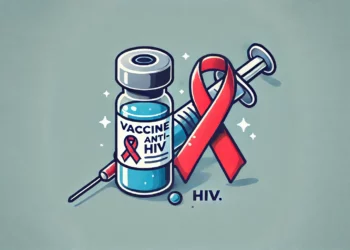A new treatment has shown “remarkable” progress in fighting HIV, doctors report. The work is being carried out by five of Britain’s top universities — Oxford, Cambridge, Imperial College London, University College London and King’s College London — coordinated by the NHS.

Image credits NIAID / flickr.
A 44-year-old British man could become the first ever patient to be cured by HIV using a treatment developed by five UK universities working together. The man (who has asked to remain anonymous) is one of 50 trial patients for a new drug that can attack the virus even in its dormant form, the team reports.
The man’s blood has been tested clean of HIV, the scientists told The Sunday Times, although that could be the effect of regular treatments. The catch with the virus — and what’s made it so tricky to cure in the past — is that it can infect white T-cells, splicing itself into their DNA. Not only does this make the cells ignore the virus, but after the drugs clear a patient’s system, they actually produce more of the virus. If these infected cells were cleared out, it could prove to be the first real cure for HIV — and that’s what the team has been working on.
“This is one of the first serious attempts at a full cure for HIV,” said managing director of the National Institute for Health Research Office for Clinical Research Infrastructure Mark Samuels.
“We are exploring the real possibility of curing HIV. This is a huge challenge and it’s still early days but the progress has been remarkable.”
Currently, the most efficient treatment we have against HIV are anti-retroviral therapies (Art), which work pretty well at destroying the virus but they can’t spot the infected T-cells. The new treatment uses a two-pronged attack. First, a vaccine teaches the body how to identify HIV-infected cells so our immune system can clear them out. Secondly, a drug called Vorinostat is used to activate the dormant T-cells which start producing HIV-specific proteins, turning them into huge targets for healthy white cells.
Imperial College London consultant physician Professor Sarah Fidler said the treatment worked in the laboratory and there was “good evidence” it will work in patients. She also stressed out that just because a drug worked once doesn’t make it a treatment yet — “We are still a long way from any actual therapy,” she said.
The anonymous patient, a social worker from London, is understandably excited about the results:
“It would be great if a cure has happened. My last blood test was a couple of weeks ago and there is no detectable virus.”
“I took part in the trial to help others as well as myself. It would be a massive achievement if, after all these years, something is found to cure people of this disease. The fact that I was a part of that would be incredible.”
Only two other people have ever been cured of HIV. One is Timothy Brown, also known as The Berlin Patient, who received a stem cell transplant from a patient with natural immunity to HIV in 2008. The other, a Mississippi newborn, seemed to have been cured through anti-retroviral therapy in 2013, an undoubtedly unique case.
Hopefully, they’re just the first in what’s to become a very long list of successes.






